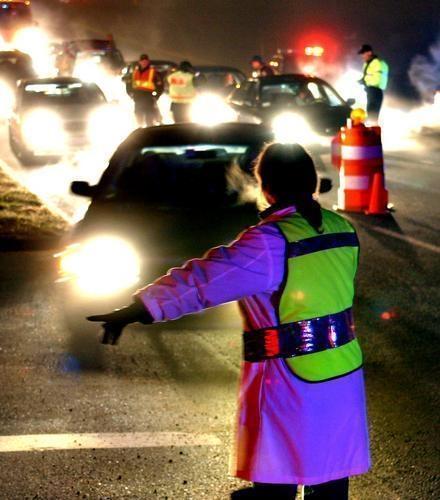TELEPHONES ANSWERED 24 HOURS A DAY
Illinois Court Rules U-Turn Did Not Justify Police Stop
 Although the Fourth Amendment prohibits “unreasonable searches” without a warrant, the courts have long held there is an exception for “reasonable” highway checkpoints where police may stop all cars in a designated area. In some cases, a motorist who intentionally avoids a roadblock may provide police with reasonable suspicion to stop and search his vehicle. But this is not always the case, as a recent Illinois appeals court decision explains.
Although the Fourth Amendment prohibits “unreasonable searches” without a warrant, the courts have long held there is an exception for “reasonable” highway checkpoints where police may stop all cars in a designated area. In some cases, a motorist who intentionally avoids a roadblock may provide police with reasonable suspicion to stop and search his vehicle. But this is not always the case, as a recent Illinois appeals court decision explains.
People v. Timmsen
In December 2011, Illinois State Police operated a checkpoint at Highway 136 near a railroad crossing. The defendant was traveling down the highway when he made a legal U-turn before reaching the roadblock. State police stopped the defendant, checked his license and registration, then arrested him since his license was suspended.
Before a trial court, the defendant moved to suppress all evidence gathered from the stop, alleging it violated the Fourth Amendment. The trial judge denied the motion. The defendant then agreed to a stipulated bench trial—essentially, he pleaded guilty to driving with a suspended license while preserving his right to appeal the denial of the motion to suppress.
On July 25 of this year, a divided three-judge panel of the Appellate Court of Illinois reversed the defendant's conviction. Two of the justices agreed the police stop violated the Fourth Amendment. Justice Mary K. O'Brien delivered the Court's decision. She noted there are cases where “actions taken to avoid a roadblock may justify a stop” based on the totality of the circumstances, but “the mere act of avoiding a roadblock is generally not sufficient to constitute reasonable suspicion by itself, and must be coupled with other articulable facts.” Here, the defendant's U-turn, while “uncommon,” was not illegal, and Justice O'Brien said there “were no factors to suggest that the defendant was doing any more than going about his business.”
Justice William E. Holdridge, agreeing with Justice O'Brien, added, “It is not a crime to avoid an encounter with the police.” There must be “objective evidence” that “criminal activity is afoot.” Justice O'Brien noted there was no evidence the defendant was driving erratically—i.e., he was driving while intoxicated—or that he sped away in an effort to “flee” the police.
Justice Daniel L. Schmidt wrote a dissenting opinion. He argued the U-turn was inherently “suspicious” and the police acted well within their authority to stop and detain the defendant.
A Close Call on Your Rights
The lack of unanimity among the three appellate judges demonstrates how suppression arguments are often close calls. What one judge may consider a legal search, another may deem a gross violation of a person's constitutional rights. That is why if you are facing criminal charges of any kind, it is important to work with an experienced Illinois criminal defense attorney. Contact the Law Offices of Hal M. Garfinkel LLC, Chicago Criminal Defense Attorney today if you have any questions.



